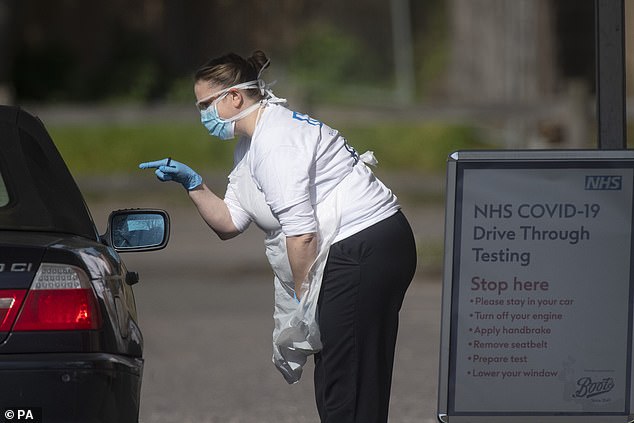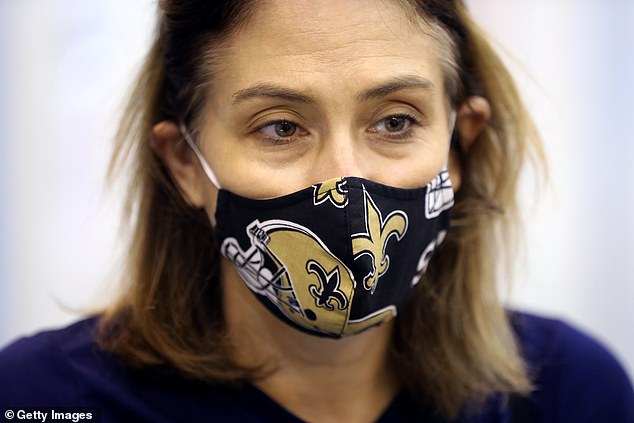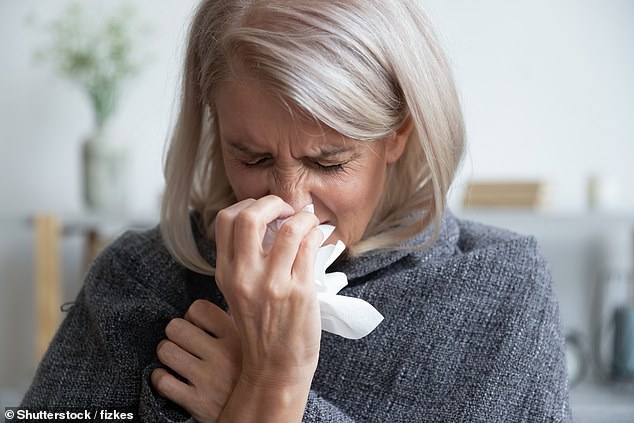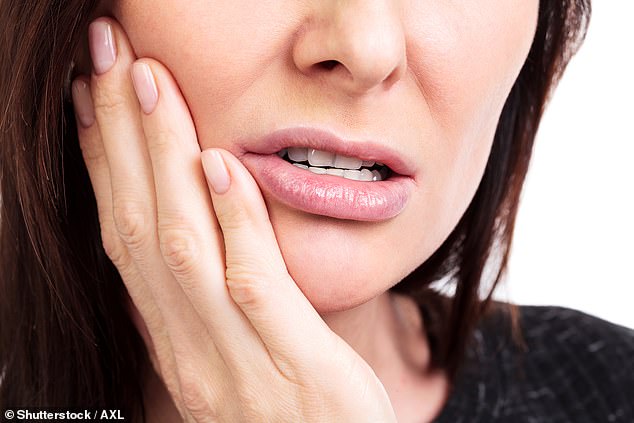I’ve heard you can pay to have a corona test privately. Should I have one if I have symptoms?
The short answer is: no. The reason so many people want a test is because we hate uncertainty. It’s understandable that people want to know if they’ve got or had Covid-19, even if we’ve had only mild symptoms. A diagnosis always gives a sense of resolution.
And I sense that people want a test because they want to know they’ve ‘had it’, and once they’re better, don’t have to worry any more. The problem is, paying for a private test is no guarantee of either of these things. I’ll explain why, but first I want to address the whole topic of testing.
Last week, the Government announced it would be ramping up screening from the current level of about 10,000 tests daily to 100,000 a day by the end of the month. It has said healthcare workers would be prioritised, then key workers, and then community testing would be rolled out.

NHS workers were yesterday being tested for Covid-19 in a drive-through system at Chessington World of Adventures
Exactly how this would happen – where we’ll have to go to get the test, and how quickly the results will come back – is yet to be announced. If we can test effectively, it helps officials to properly track the spread of the disease, isolate the right people and protect those around them.
But screening for Covid-19 isn’t simple. The test involves swabbing the nose, then mixing the cells gathered with chemicals to show the presence of the virus’s genetic material. This kind of test can, in up to a third of cases, give a ‘false negative’ result. That means it can show a patient doesn’t have Covid-19 when, in fact, they do. For this reason, doctors in hospitals will carry out two or more tests to confirm a suspected diagnosis.
In hospitals, where suspected cases are isolated anyway, this isn’t such a problem. But a false negative in the community would be more worrying. You could get people thinking they aren’t infected, when they are. They may not self-isolate and end up spreading the infection.
The accuracy of the result is dependent on correct swabbing technique, handling of the sample and lab analysis methods. When the Government does roll out community testing, it should be to the highest standard in order to reduce the chances of false negatives. The same high standards cannot be applied for tests done at private clinics or DIY kits sent to the home. The chances are, if you do the test yourself, you’ll get an inaccurate result. A patient told me last week they had paid for a private kit and it had given a negative result – but admitted they weren’t at all sure they’d taken the nose swab correctly. It has to be inserted into the nasal cavity in a particular way.
The best thing to do right now, if you develop any cold or flu symptoms, is to follow the guidelines and self-isolate.
I had understood masks weren’t necessary but everyone seems to be wearing them. Do I need to?
As with testing, the issue of masks isn’t straightforward. Used wrongly, they can be next to useless and, worse, lull people into a false sense of security.
The virus that causes Covid-19 is spread in droplets that are airborne when someone coughs or sneezes. These droplets can only travel for about one metre but, if you’re close enough, they could enter your mouth, nose or eyes, and transmission occurs. The droplets can also fall on surfaces and, depending on the material and environmental conditions, the virus can live there for days. Anyone touching that surface and then touching their face could be infected.

Used wrongly, masks can be next to useless and, worse, lull people into a false sense of security, writes Dr Ellie Cannon
If someone is sick, wearing a paper surgical mask can lessen the likelihood of them spreading the virus, as it acts as a physical barrier. They can also help protect someone coming into close contact with a patient. But these masks must be worn correctly. They are designed to be used once as the outside of the mask could be contaminated. Thorough handwashing should follow this.
The mask can also become contaminated if it is fiddled with or pushed up into your hair or under your chin. They may actually make people more likely to touch their face.
This is why, in day-to-day life, masks do not help protect you from getting the virus. And that’s why regular handwashing – and trying not to touch your face – remains the first line of defence.
Moreover, there is a shortage of masks for NHS workers at present. So buying them may mean depriving someone who actually needs one.
Could my supermarket shopping be contaminated by the virus, and do I need to clean it once I get it home?
NHS guidance says it is ‘unlikely’ that the virus can be spread via droplets on food or food packaging but, theoretically, the risk is still there, albeit small.

Wiping down shopping with disinfectant spray may well help to avoid the spread of the virus
We know the virus can survive for days on some surfaces. How long they remain infectious for when exposed to the elements, and on which kind of surfaces, is less well understood.
Wiping down shopping with disinfectant spray may well help to avoid the spread of the virus. If you’re worried, put on rubber gloves, make a lather with washing-up liquid and wipe everything down, as soapy lather kills the virus.
Unnecessary packaging can be thrown away or put in the recycle bin, then wash your hands thoroughly. All this could be unnecessary, but it probably reduces the risk of infection a bit, and if it puts your mind at rest it’s worth it.
I’ve lost my sense of smell, and hear that it’s a symptom of Covid-19. What should I do?
It’s possibly Covid-19 – reports suggest a third of patients with the infection suffer anosmia, a loss of the sense of smell.
Some claim this is their only symptom. However, at present there isn’t enough evidence to know for sure if anosmia really is a sign of Covid-19. Anosmia is also a common symptom of colds and even hay fever.

Reports suggest a third of patients with the infection suffer anosmia, a loss of the sense of smell
The safest thing to do would be to self-isolate for seven days, although, at present, guidelines do not specify this.
If you’re already working from home and following social-distancing rules, this should not make much of a difference – but be extra careful with those you live with and make sure you wash your hands carefully and regularly.
Those caring for vulnerable or elderly individuals should also be more vigilant.
It’s better to err on the side of caution and treat any symptom as a risk to this group.
If you are still going out to work, speak to your employer about this potential Covid-19 symptom. Ideally, they will allow you to stay at home for seven days.
I have terrible toothache, but my dentist is closed and they are telling me to ring NHS 111. Surely this isn’t right?
Dentists can only work safely with full personal protective equipment – PPE, which includes close-fitting masks and visors to protect the eyes, and overalls – as close contact with patients’ mouths means they are at high risk of catching the infection.

If a local clinic is closed, dentists will tell patients with toothache or similar symptoms to call NHS 111 – which will be able refer to a local urgent dental service, if necessary
It seems there have been problems in getting enough PPE even to hospital staff, which is worrying.
And because of the shortage, doctors in many specialities, such as ear, nose and throat (ENT), and also dentists, have been unable to carry on seeing patients on a regular basis.
If a local clinic is closed, they will tell patients with toothache or similar symptoms to call NHS 111 – which will be able refer to a local urgent dental service, if necessary.
The dentist in the urgent dental service will initially give you a call and offer some advice. They’ll be able to prescribe medication if required and may offer an appointment.
Private dentists will usually make arrangements for their own patients, but there is no obligation for them to remain open at this time and they may also suggest calling NHS 111.
I am self-isolating with my husband, who is ill with Covid-19 symptoms. We’ve called NHS 111, and don’t want to bother them unnecessarily – but when should I ask for help again?
The common symptoms of Covid-19 are a fever and cough but also exhaustion, aches and pains and maybe even nausea or diarrhoea.
These symptoms can last for ten to 14 days in some cases.
Drinking plenty of fluids is important, as it’s easy to become dehydrated and that can lead to worsening problems. The crucial warning symptom is breathlessness. Any shortness of breath, tightness or difficulty breathing is your alarm bell to call for help. Use the online checker at 111.nhs.uk, call your GP or call 111 if you notice these symptoms. Breathing difficulties could be the sign of severe illness, including pneumonia. This can happen at any stage of the illness.